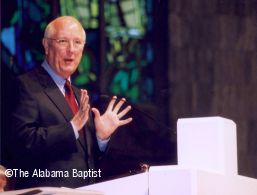Unless Christ returns in our lifetime, our initiation into God’s last things will happen at death. As it’s often said, the human mortality rate is 100 percent. Hebrews 9:27 puts it clearly: “It is appointed unto men once to die and after this the judgment.” Our question this week is simply, “What might we glean from the Bible about this initial event in God’s last things?” The Bible endorses the observation that death is the common lot of all living things.
Genesis 5 lists the generations from Adam to Noah, and with the exception of Enoch — although each one is said to have lived hundreds of years — each person has the summary of his life end with the same three words, “and he died” (vv. 5, 8, 11, 14, 17, 20, 27, 31). Death is part and parcel of earthly life. We are born, we live and then we die. Earthly life does not last forever. When did this become the common lot of all humans? At its outset, the Bible presents death as the result of sin (Gen. 2:17). In the New Testament, Romans 6:23 underscores the reality that death is the wage of sin.
Stark reality
Death is often euphemized in attempts to soften its stark reality. People without a sure and steadfast hope for a blessed future, as well as many Christians, attempt other ways of referring to death. Those of us who have served as pastors and hence been involved with many funerals have heard death referred to by such alternatives as “passing,” “passing on” or “passing away.” We hear such expressions as “departed,” “crossed over,” “laid to rest,” “breathed one’s last” or simply “someone is no longer with us.” In fact the Bible itself says of the deaths of the patriarchs, Abraham, Isaac and Jacob, that each of them “breathed his last” (Gen. 25:8; 35:29; 49:33).
The Bible has another well-known euphemism for death, calling it “sleep.” David is said to have “slept” with his fathers (1 Kings 2:10). When the daughter of Jairus died, Jesus told the mourners, “Do not weep; she is not dead, but sleeping” (Luke 8:52).
Similarly when Lazarus had died and been buried, Jesus told the disciples that Lazarus was “sleeping” (John 11:11). A person who is sleeping is expected to awaken at some point. When the analogy is applied to believers, the truth is rather evident: those who die in the Lord are expecting a resurrection.
Fear of the unknown
Since the act of dying is something we have yet to experience, there can be a fear of the unknown. Even so Hebrews 2:14–15 reminds Christians that Christ has removed the fear of death by His victory on the cross.
While the analogy of death as sleeping softens the impact of death, the starkness returns when the Bible calls death an enemy. In fact 1 Corinthians 15:26 terms death as “the last enemy.” However, that same chapter ends by telling us that this last enemy is a defeated enemy.
In light of and after the resurrection of Christ, Christians are headed toward a victory when the corruptible puts on incorruption and the mortal puts on immortality, bringing to pass the saying, “Death is swallowed up in victory” (1 Cor. 15:54). The Bible is quite clear about this victory. It tells us that death is a matter of being absent from the body and present with the Lord (2 Cor. 5:8).
Look for more about this next week when Theology 101 looks at what lies just beyond the moment of death for God’s children.







Share with others: